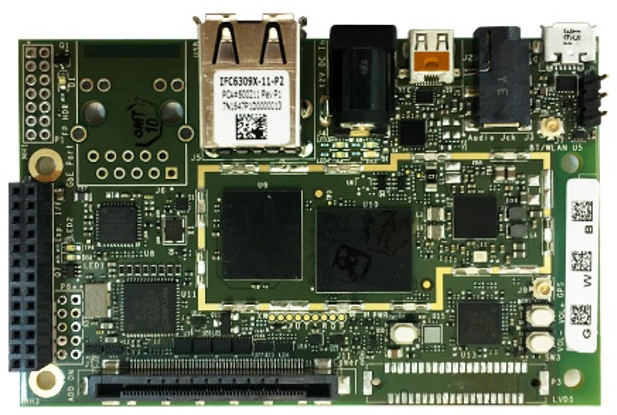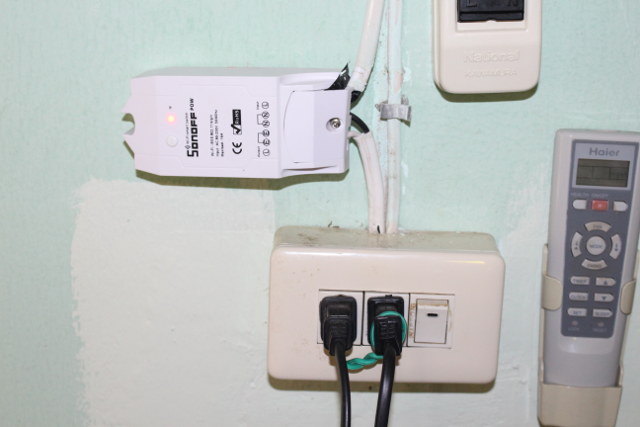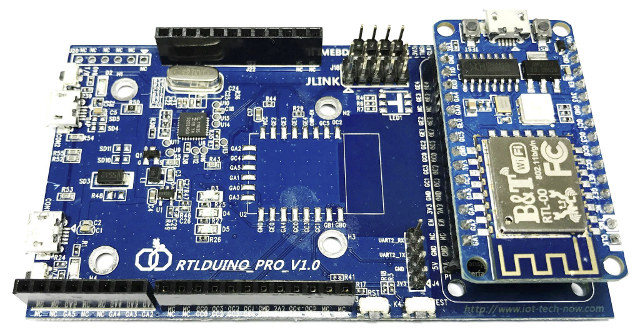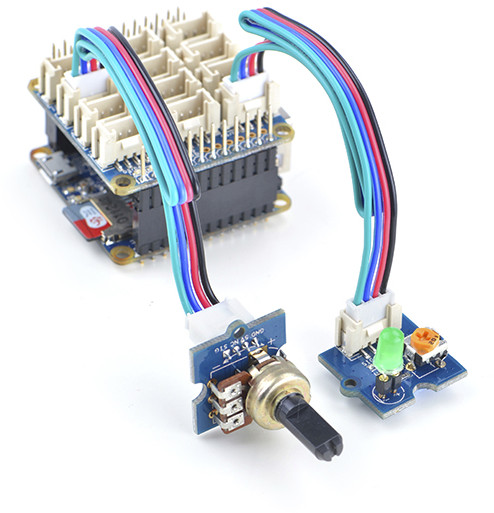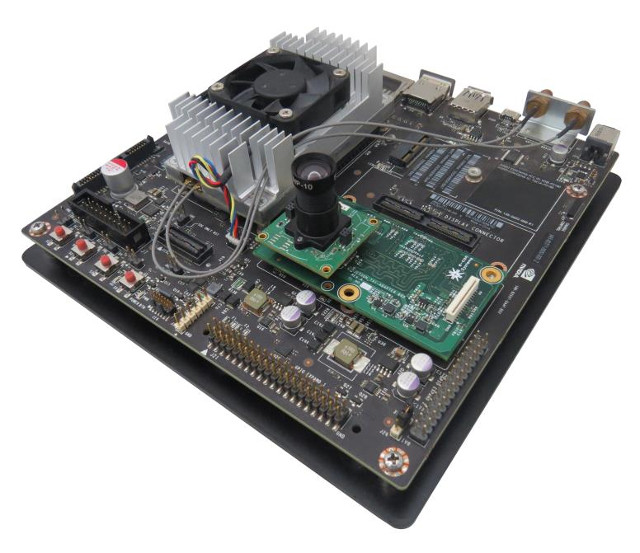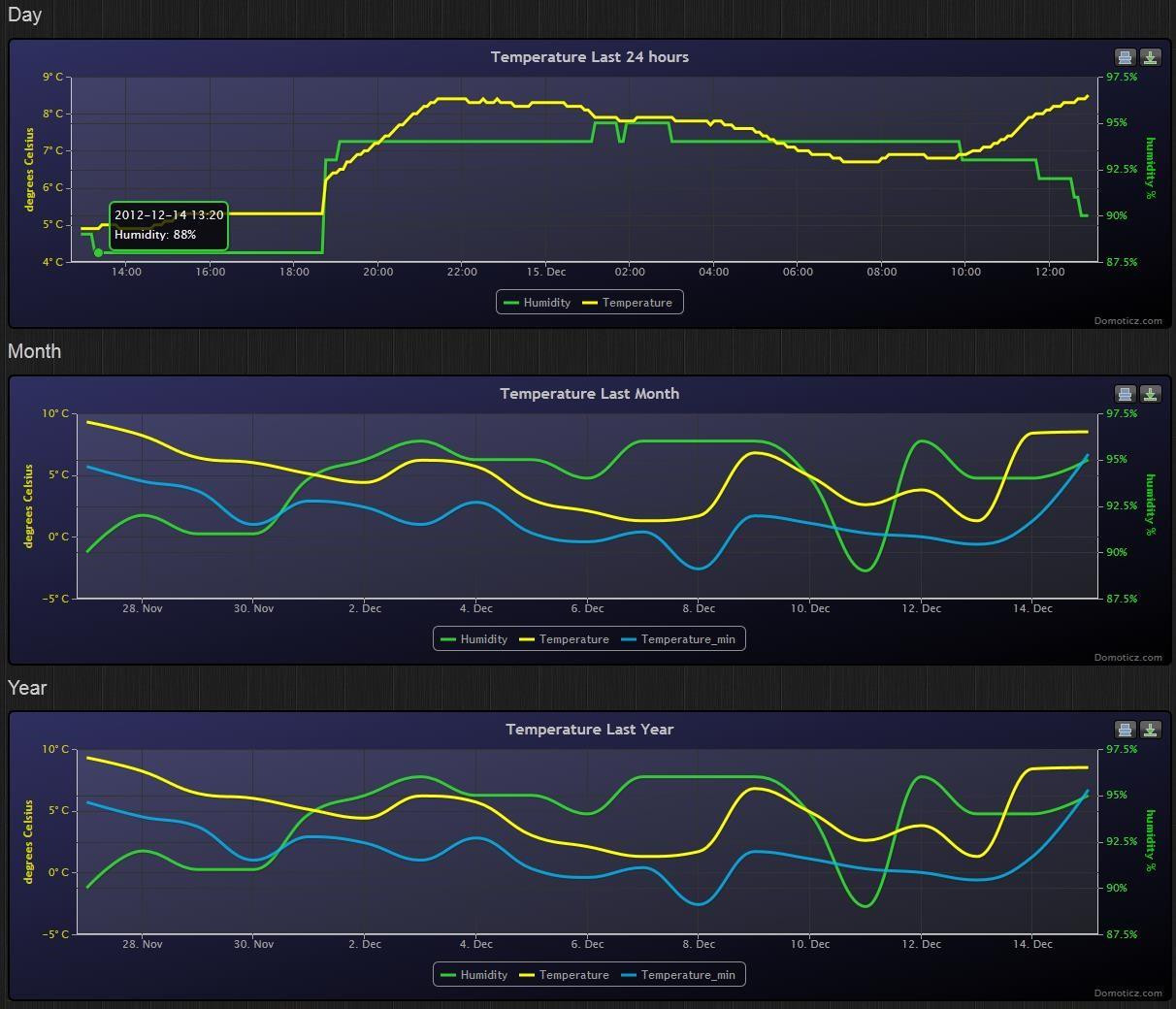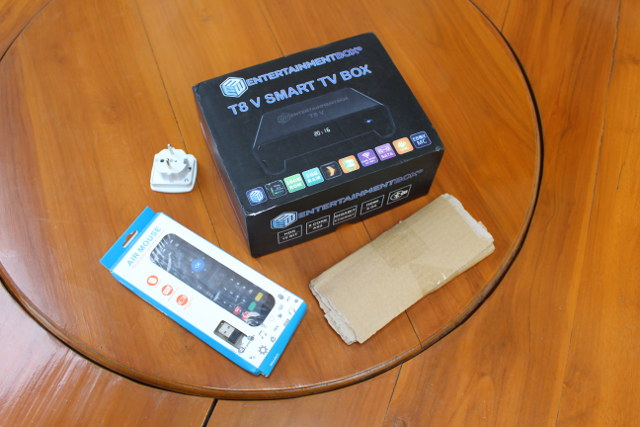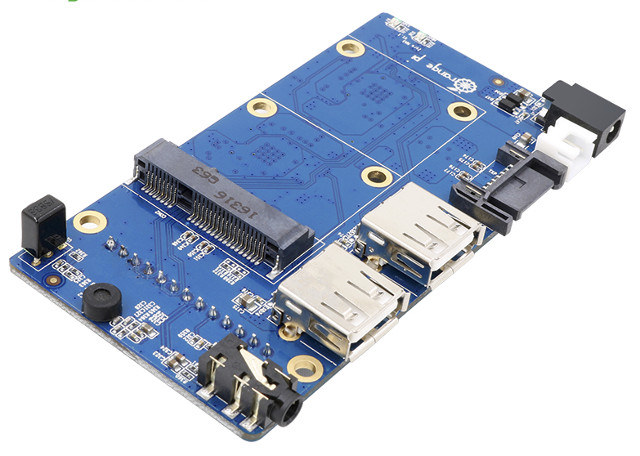Inforce Computing launched 6309 micro single board computer powered by Snapdragon 410 processor, and compatible with 96Boards Dragon 410c board, a little over a year ago. The company has sent a newsletter promoting the launch of cost-down version with long term support equipped with Snapdragon 410E processor, and named Inforce 6309L. Comparison table between Inforce 6309L board and DragonBoard 410C provided by the company: Inforce 6309L Dragonboard 410C SoC Qualcomm Snapdragon 410E quad core ARM Cortex A53 processor with Adreno 306 GPU Dimensions 54mm x 85mm Memory Storage 1GB LPDDR3 8GB eMMC Micro SD Connectivity Wi-Fi/BT/GPS Video 1080p HD video 720p HEVC playback Camera Dual cameras 13MP on MIPI-CSI Interfaces Micro USB, USB, Micro HDMI, MIPI-CSI, expansion header Micro USB, USB, HDMI, expansion header Operating System Android Lollipop 5.1 Linux (Debian) Win10 IoT core Both boards are pretty similar, except Inforce 6901L replaced the HDMI port with a mico HDMI […]
How to use Sonoff POW with ESPurna Firmware and Domoticz Home Automation System
Sonoff POW is an ESP8266 based wireless switch with a power meter that comes pre-loaded with a closed-source firmware that works with eWelink app for Android or iOS by default. But we’ve also seen Sonoff POW, and other Sonoff wireless switches from the same family, can be flash with open source firmware supporting MQTT (Message Queuing Telemetry Transport) lightweight messaging protocol such as ESPurna, and I initially sent data from Sonoff POW to ThingSpeak via an MQTT broker (mosquitto) to draw some pretty charts. I did that with the switch connected to a lightbulb, but I’ve since installed Sonoff POW in my office to measure the room’s power consumption minus the ceiling light and aircon as shown below. Sonoff cable mechanism is really a pain for hard copper wires, as they are hard to push inside the mechanism, and something come out. I finally managed by it took longer than […]
RTL8710 Ameba Arduino Development Board and Ameba Arduino v2.0.0 SDK Released
We’ve already seen a NodeMCU lookalike board called RTLDuino based on Realtek RTL8710AF ARM Cortex M3 WiSoC earlier this month, that can be programmed with a community supported Arduino port also called rtlduino via a JLink SWD debugger, but now Realtek has just launched Ameba RTL8710 Arduino board, and released Ameba Arduino v2.0.0 SDK which brings official Arduino support to RTL8710AF platforms. There appears to be two versions of the development kit: RTLDUINO_PRO_V1.0 and REALTEK-AMEBA_RTL8710_V2.0, but based on the user manual they seem to be identical, and as you can see from the above picture, it includes a baseboard and the aforementioned RTLDuino board. RTL8710 Ameba Arduino HDK key features: SoC – Realtek RTL8710AF ARM Cortex-M3 MCU @ 83 MHz with 802.11 b/g/n WiFi, hardware SSL engine connected to the baseboard via: RTLDuino board through female header B&T RTL-00 module soldered on module footprint USB – 2x micro USB ports, […]
$30 BakeBit Starter Kit Adds Sensors & Buttons to Your NanoPi NEO & NEO Air Boards
FriendlyElec (previously FriendlyARM) launched NanoPi NEO and then NanoPi NEO Air board as respectively Ethernet and WiFi/Bluetooth connected boards for IoT applications. But so far, there was no ecosystem around the board, you had to use your own sensor modules, and write your own software to control them. This has now changed with the launch a BakeBit Starter Kit with twelve sensor modules, a NanoHat Hub add-on board designed for NanoPi boards, as well as BakeBit Library to control the hardware. The NanoHat Hub plugs into the two NanoPi NEO headers and provide 12 headers with 3x I2C interfaces, 3x analog interfaces, 2x UART interfaces, and 4x digital interfaces among which D3 and D5 support PWM, compatible with SeeedStudio Grove modules. You then have a choice of 12 modules to connect to the NanoHat Hub: OLED Module Ultrasonic Module Green LED Module Red LED Module LED Bar Module Rotary Angle […]
e-con Systems Launches e-CAM130_CUTX1 Ultra HD Camera for Nvidia Jetson TX1 Development Board
e-con Systems, an embedded camera solution company, has just announced the launch of e-CAM130_CUTX1 MIPI camera board for NVIDIA Jetson Tegra X1 development kit. The 13MP camera is based on On Semiconductor AR1820 CMOS image sensor, connects to TX1 board via its 4-lane MIPI CSI-2 connector, and supporting up to 3840 x 2160 @ 30fps/ 13MP@ 20 fps video streaming in uncompressed YUV format. e-CAM130_CUTX1 4K camera board features & specifications: Sensor – 1/2.3″ Optical form factor AR1820HS sensor with on-board high performance ISP. Focus Type – Fixed focus Resolution: – 13MP on e-CAM130_CUTX1 (The sensor is capable of 18MP) Pixel size – 1.25μm pixel with Aptina / ON Semiconductor A-PixHS with BSI technology and advanced pixel architecture Sensor Active Area – 4912(H) x 3684(V) Responsivity – 0.62 V/lux-sec (545nm); SNR: 36.3 dB; Dynamic Range: 65.8 dB Output Format – Uncompressed YUV422 format and compressed MJPEG format. YUV422 resolutions: VGA @ […]
How to Install Domoticz Home Automation System in NanoPi NEO and Other ARM Linux Boards
I’ve recently started experimenting with IoT projects, and the first hurdle is to select the hardware and software for your projects are there are simply so many options. For the hardware your first have to choose the communication protocols for your sensors and actuators, and if you are going to go with WiFi, ESP8266 is the obvious solution, used together with your favorite low cost Linux development board such as Raspberry Pi or Orange Pi to run some IoT server software locally or leveraging the cloud. But the most difficult & confusing part for me was to select the server software / cloud services as there are just so many options. I prefer having a local server than something running only in the cloud, as my Internet goes a few hours a month, so I started with a solution combining ThingSpeak with MQTT gathering data from Sonoff power switches running […]
Review of Ebox T8 V Amlogic S912 TV Box with SATA Bay – Part 1: Specs, Unboxing and Teardown
Last summer I reviewed Ebox T8-4, an Android TV box based on Amlogic S905 processor sold by entertainmentbox.com and geared towards the UK market. Although it had some of the typical issues with HDMI audio pass-through, I found the box easy to setup, and potentially interesting for UK viewers since popular IPTV apps were pre-installed. It also came with a SATA bay but for some reasons I never managed to have either a 1TV HDD or 128 GB SSD recognized by the system. Nevertheless, the box is now used full time by another person who seems to be quite happy about it, especially since it comes with an air mouse and a gamepad, and good support. The company has now sent me their updated model, Ebox T8 V, with very similar features but instead equipped with Amlogic S912 octa-core processor. Before checking the firmware, I’ll have a look at the […]
Orange Pi Zero NAS Expansion Board with SATA, USB, and AV Port Sells for $10 Shipped
Orange Pi Zero is a $7 and up board based on Allwinner H2+ quad core Cortex A7 processor with 256 to 512MB RAM, Ethernet, WiFi, and USB, but no video output except on headers, making it more suitable to headless applications. The company has just launched Orange Pi Zero NAS Expansion port adding SATA, mSATA, two more USB ports, and an AV port allowing you to add a hard drive or SSD, and connect it to a TV with composite input. Orange Pi Zero NAS Expansion Board preliminary specifications: Storage – 1x SATA port, 1x mSATA port both through a JMS578 USB 3.1 to SATA bridge with UAS support each, which should be better than some other USB to SATA solution despite only being connected to a USB 2.0 interface. USB – 2x USB 2.0 ports Video & Audio Output – 3.5mm AV jack with composite video (TBC) and stereo […]


